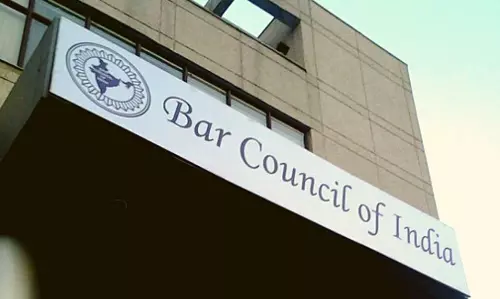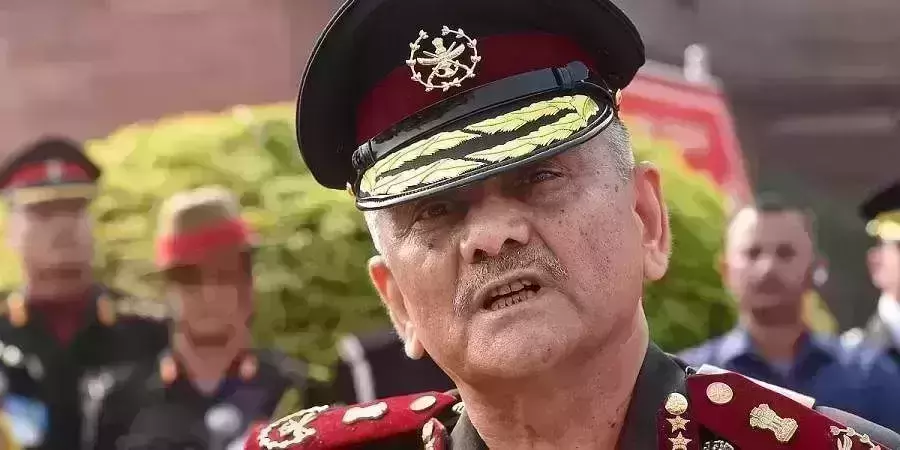
Hostility aggravated by diplomacy of mistrust
text_fieldsFormer Indian naval officer Kulbhushan Jadhav was sentenced to death and is currently lodged in a prison in Pakistan.
Instead of seeing the step of giving an opportunity for his family members to meet him as a gesture of high humanitarian values, and thereby creating a good precedent, it is unfortunate that both the nations have dragged the situation to a worsening of bilateral ties. When the matter concerns a person involved in a case that has even come before the International Court of Justice (ICJ), both the countries should have been cautious to handle it with extra care. Instead, taking advantage of the opportunity for political exploitation using the life of a human being, has made the exercise counter-productive. India alleges that Jadhav who had been engaged in business in Iran was arrested in March last year and taken to Pakistan where he was accused of espionage and sentenced to death in a farce trial by a secret military court in violation of international law. India obtained a stay by approaching the ICJ when Jadhav’s plea against his death sentence was rejected. Making arrangements for Jadhav’s mother and his wife to meet him in prison where he has been lodged for the past 22 months, was due to the intervention of the Indian embassy in Pakistan at high levels.
Since the case is one that attracted global attention, Pakistan's using the opportunity to prove that it treasures human values and that the country is sincerely committed towards such virtues, need not be seen as a grave crime; particularly since the case is likely to come up again before the ICJ. However, India’s allegation that Jadhav’s mother and wife were ill-treated and that the meeting ended in a manner that affected their religious, cultural and sentimental aspects has paved way for heated discussions within and outside the Parliament. External Affairs Minister Sushma Swaraj on Thursday said in Parliament that severe human rights violations had occurred during the meeting and that Jadhav’s mother and wife were presented as ‘widows’. Allegations capable of enraging a listener have also been raised, such as that Jadhav was allowed to meet his wife and mother only from behind a glass barrier, that his wife was asked to remove her bindi, bangles and her nuptial necklace (mangal sutra), and also her shoes. On the other hand, the Indian media that have always been in the forefront of fostering an anti-Pak centric political outlook, also handled this controversy in such a way that it inflamed the matter. It was in this backdrop that outcries of ripping the neighbo uring country into bits and pieces were raised from certain quarters.
The method of aggravating mistrust between neighbours to its climax thereby breeding hatred against aliens, is not new - one that regimes always adopt to divert attention from core internal issues. The course of Pakistan in first allowing the kith and kin of Kulbhushan Jadhav to meet him, in arranging the media to highlight it as the country's magnanimity and high humanitarian consideration and then publicizing it in that light, is to be seen merely as Pakistan's politics. Even the statement purportedly by Jadhav expressing gratitude to Pakistan for having facilitated such an occasion, is widely viewed as a huge media exercise by Pakistan. At the same time, the allegation of India that the meeting was made a farce throwing the diplomatic understanding to the winds, deserves equal scrutiny. Was there any specific agreement between the diplomats as to where and how Jadhav's family was supposed to meet him? Normally, a prisoner convicted to capital punishment will be allowed to meet the dear ones only under strict restrictions, and the same will be governed by the prison manuals of the respective country. It will usually be across glass partition too, and no metal objects will be allowed into the area. But the Pak version that a metal object was detected in the footwear of Jadhav's wife and that a forensic test was ongoing about it, was scoffed at by Foreign Minister Sushma Swaraj. There had already been allegations that diplomatic officials were not granted an opportunity to meet Jadhav. But what the neighbours lost sight of in an atmosphere of hostility is the heartburn of a family over the splintering of human ties across the border, and the palpitations of a human being spending precious waiting time near the gallows.























